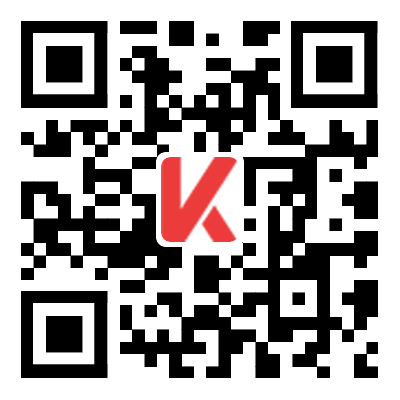用英语介绍自己的家谱带翻译

Hello,everybody!Do you know my name?My name is YangYibin and I am so happy I can have a happy(幸福的)family There are six people in my family They are my father ,my mother ,my sister,my grandparents,my uncle ,my aunt and me This is my family。I love my family。你们好,你知道我的名字吗?我的名字是杨一斌,我很开心有一个幸福的家庭。我家有六口全文
4
分享评论
踩
用英语介绍自己的
专家1对1在线解答疑惑
去提问
— 你看完啦,以下内容更有趣 —
怎么用英语介绍自己的家人并且带翻译?
I have a very happy family, my parents have a very good job, my father is an engineer, a lot of bridges in city are designed by him, he walked every day in the design of the road, feel very proud, my mother is a teacher, she taught students are special well, I am really proud of my family 我有一个很美好的家庭,我的爸妈都有很好的工作,我爸是工程师,城市中很多的桥梁都是他设计的,每天都在走他设计的路,感觉很骄傲,我妈是一个人民教师,她教出来的学生成绩都特别好,我真的为我的家庭感到骄傲。 My family live in the capital of China, Beijing I am a high school student now Thanks to my parents I am, me today My parents are the always my icon of how I would like to be when I grow up I am very proud of my father because that he is in the military, because of people like him we have a better world Because of people my father we are here today I am very pround of my mother because she is a teacher, she is very patiant and always kind to others I am very proud for my family 我的家人生活在中国的首都,北京。我现在是一名中学生。感谢我的父母,我,我今天。我的父母一直是我长大后想成为的偶像。我为我的父亲感到骄傲,因为他在军队里,因为像他这样的人,我们有一个更美好的世界。因为有人,我的父亲,我们今天在这里。我很自豪我的妈妈因为她是一个老师,她对人很善良,总是下。我为我的家庭感到骄傲。
初一下册重点
1 介词:in, on, under, behind, near, at, of
1) in表示"在……中", "在……内"。
in our class 在我们班上
in the desk 在桌子里
2) on 表示"在……上"。
on the wall 在墙上
3) under表示"在……下"。
under the tree 在树下
4) behind表示"在……后面"。
behind the door 在门后
5) near表示"在……附近"。
near the bed 在床附近
6) at表示"在……处"。:
at home 在家
7) of 表示"……的"。
a map of China 一张中国地图
2 冠词 a / an / the:
冠词位于限定的名词前,用来署名名词所指的人或事物。有不定冠词和定冠词两种。不定冠词有两个形式,即a和an。a用在以辅音音标开头的词前,如a book; an用在以元音音标开头的字母前,如an apple
a或an与可数名词单数连用。
This is a cat
这是一只猫。
He is a teacher
他是个老师。
the既可以用在可数名词前,也可以用在不可数名词前,表示某个或某些特定的人或事物,也可以指上文提到过的人或事物。
Who's the boy in the hat
戴帽子的男孩是谁呀?
------ What can you see in the classroom
------ I can see a bag
------ Where's the bag
------ It's on the desk
------- 你能在教室里看到什么呀?
------ 我能看见一个书包。
------ 书包在哪呀?
------ 在桌子上。
3some和any
①在肯定句中用some:
Lucy has some good books露西有一些好书。
②在疑问句和否定句中用any。
Is there any ink in your pen你的钢笔里有墨水吗?
There isn't any water in the glass杯子里没有水。
little的用法
a little dog 一只小狗,a little boy 一个小男孩。little常用来修饰有生命的名词。
但little还可表示否定意义,意为"少的",后面跟不可数名词。
There is little time 几乎没时间了。
⑵ 词组
on the desk 在桌子上
behind the chair 在椅子后
under the chair 在椅子下面
in her pencil-box 在她的铅笔盒中
near the door 在门附近
a picture of a classroom 一个教室的
look at the picture 看这张
the teacher's desk 讲桌
a map of China 一张中国地图
family tree 家谱
have a seat 坐下,就坐
this way 这边走
二 日常用语
1 Come and meet my family
2 Go and see I think it's Li Lei
3 Glad to meet you
4 What can you see in the picture
I can see a clock / some books
5 Can you see an orange
Yes, I can / No, I can't
6 Where's Shenzhen
It's near Hong Kong
7 Let me see(口语)让我想想看。
see 在这是"明白、懂了",不可译作"看见"。例如:
8 Please have a seat
seat表示"座位",是个名词。have a seat表示"就坐",也可以说take a seat, 和sit down的意思相同。
三 语法
1 名词所有格
名词如要表示与后面名词的所有关系,通常用名词所有格的形式,意为"……的"。一般有以下几种形式:
(1) 一般情况下在词尾加"'s"。例如:
Kate's father Kate的爸爸
my mother's friend 我妈妈的朋友
(2) 如果复数名词以s结尾,只加"'"。例如:
Teachers' Day 教师节
The boys' game 男孩们的游戏
(3) 如果复数名词不以s结尾,仍加"'s"。例如:
Children's Day 儿童节
Women's Day 妇女节
(4) 表示两个或几个共有时,所有格应加在后一个名词上。例如:
Lucy and Lily's room Lucy 和Lily的房间
Kate and Jim's father Kate 和Jim的爸爸
动物和无生命事物的名词的所有格一般不在词尾加"'s",而常常用介词of的短语来表示。
a map of China 一幅中国地图
the name of her cat 她的猫的名字
a picture of my family 我的家庭的一张照片
the door of the bedroom 卧室的门
2 祈使句
祈使句主要用来表示说话人的请求、命令、建议、叮嘱等意图。祈使句一般不用主语,读时用降调。为使语气委婉、礼貌,常在句首或句尾加please 。在句尾时,please前多用逗号。
(1) 祈使句肯定形式的谓语动词一律用动词原形。
Go and see 去看看。
Come in, please 请进。
(2) 祈使句的否定形式常用don't于句首。
Don't look at your books 不要看书。
Don't play on the road 不要在马路上玩。
3 There be 的句子结构
There be是一个"存在"句型,表示"有"的意思,
肯定句的形式为:There be + 名词(单数或复数)+地点状语或时间状语。
be动词单复数的确定,看be后边第一个名词,当所接主语为单数或不可数名词时,be动词形式为is;当所接主语为复数名词时,be动词为are;当be动词后接两个以上主语时,be动词与最临近主语保持数上的一致。意思为"某地有某人或某物"。如:
There is an eraser and two pens on the desk 桌子上有一块橡皮和两支钢笔。
There are two pens and an eraser on the desk 桌上有两支钢笔和一块橡皮。
(1)there be的否定句,即在be的后面加上not。
否定形式为:There be + not + (any) + 名词+地点状语。
There is not any cat in the room 房间里没猫。
There aren't any books on the desk 桌子上没书。
(2)there be句型的疑问句就是将be提到句首:Be there + (any) +名词+地点状语?肯定回答:Yes, there is / are 否定回答:No, there isn't / aren't
---Is there a dog in the picture 画上有一只狗吗?
---Yes, there is 有。
---Are there any boats in the river 河里有船吗?
---No, there aren't 没有。
(3)特殊疑问句:How many are there (+地点状语)?"某地有多少人或物?"回答用There be
There's one / There are two / three / some
有时直接就用数字来回答。One / Two
---How many students are there in the classroom 教室里有多少学生?
---There's only one / There are nine 只有一个。/有九个。
(4)如果名词是不可数名词,用:How much + 不可数名词 + is there + 地点状语?
How much water is there in the cup 杯中有多少水?
How much food is there in the bowl 碗里有多少食物?
用英语介绍自己的家谱带翻译
声明:除非特别标注,否则均为本站原创文章,转载时请以链接形式注明文章出处。如若本站内容侵犯了原著者的合法权益,可联系本站删除。


